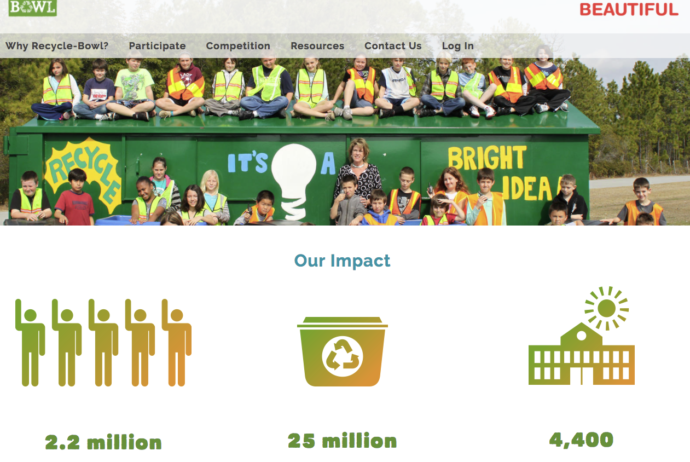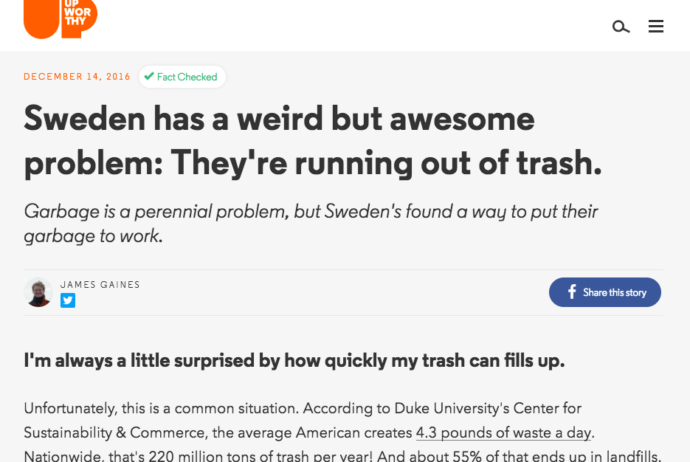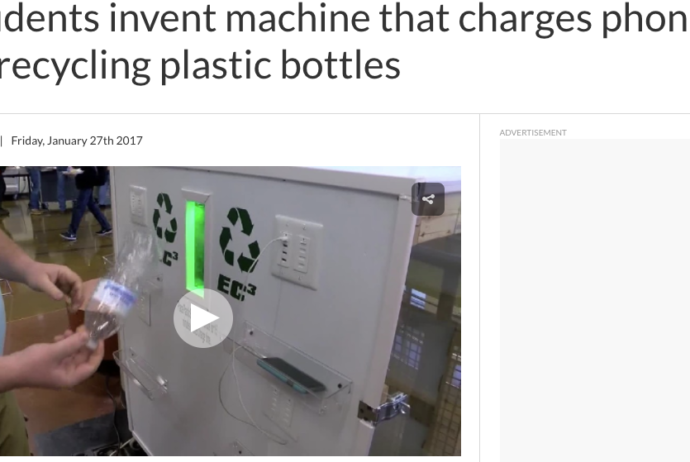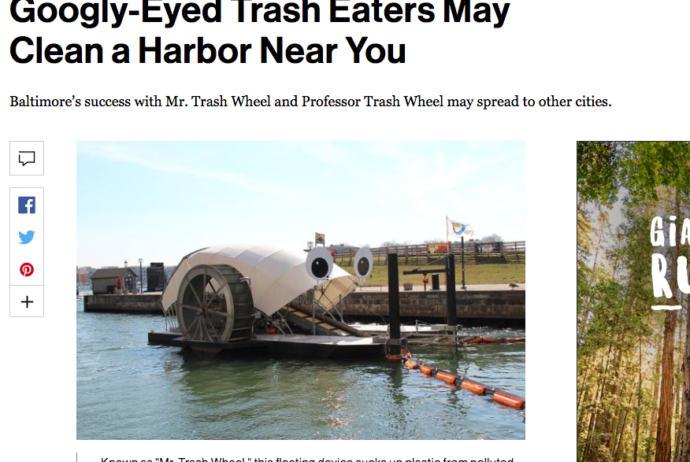Last December, Upworthy published the following article:
Can this really be the case? This article starts out with how much trash each American generates per day (4.3 pounds a day). Evening though 66% of household trash can be composted, we don’t use close to that amount. The USA only composts 33%, whereas Sweden composts 50% of its trash.
Supposedly, Sweden wants that trash so they can compost more, and recycle more, to create energy. This energy is used to provide heat and electricity to towns in Sweden. They have built 32 “waste-to-energy” plants which provide heat to 810,000 homes and electricity to 250,000. To keep these “waste-to-energy” plants, Sweden is buying trash from other countries.
Note: The USA has 84 “waste-to-energy” plants (source: Energy Recovery Council), with Florida and New York having the most — 11 and 10 respectively.
—–
This article triggered me to think about several questions and to search for answers to these questions:
How much trash do people make a day? In the USA, it ranges from 4.3 pounds a day (source: Duke’s Center for Sustainability & Commerce) to 7.1 pounds a day (source: Edward Humes, “Garbology: Our Dirty Love Affair with Trash“. Compare that to 1960, when Americans produced 2.7 pounds of trash per person per day (source: Duke’s Center for Sustainability & Commerce). With a population of 319m, that is a lot of trash being generated per year, and over our individual lifetime (Humes calculates that is 102 tons of trash we individually generated over each of our lifetimes).
How many landfills are there in the USA, and what is their landmass? Currently, there are 3,500 active landfills in the USA. That is 70 landfills per state on average. However, some states are more populated than the other. New York, Texas, and California have the most landfills. With the USA population being 319m, that is ~91,000 persons per landfill.
The largest landfills are in California (Sunshine Canyon Landfill / Puente Hills Landfill), Indiana (Newton County Landfill), and Nevada (Apex Regional Waste Management Center).
And interesting history fact I found out when looking for answers to my questions: The city of Fresno was the first city with a municipal landfill: Fresno Municipal Sanitary Landfill. The landfill opened in 1937, located 3 miles southwest of downtown Fresno, pioneering the use of trenching, compacting, and daily burial of trash. In the Fresno case, it was to combat debris AND rodent problems. The landfill was closed in 1987 (or 1989), after it had reached 145 acres. It became a National Historic Landmark in 2001 [ was debated to be included on the NHL list, the landfill is also a Superfund site, as it has leaked toxic materials ]








